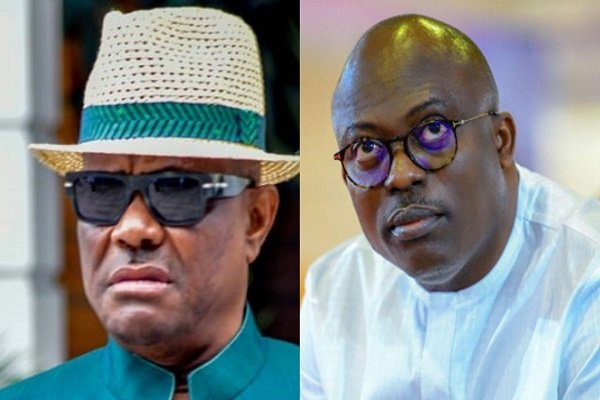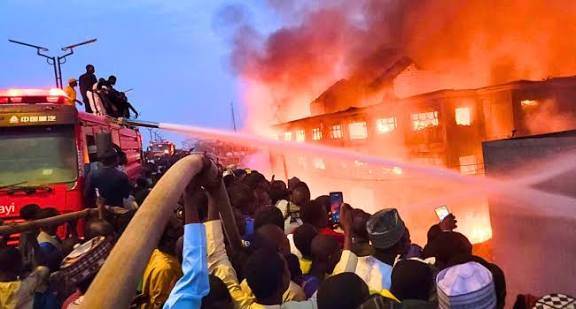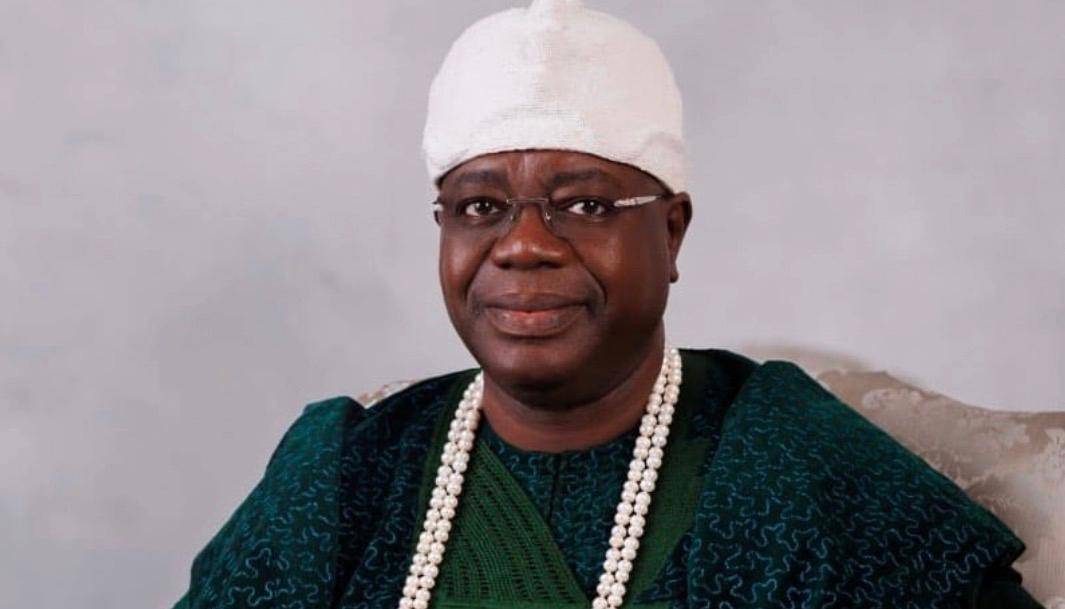By Palladium
Apart from the reckless and profligate demolition of the iconic Rivers State House of Assembly building, much of last week was taken up by the furore over the resignation of some seven commissioners on the cabinet of Governor Siminalayi Fubara. The governor has come of age and has decided that whatever the cost, he is determined to be his own man and will not be a leader who cannot call his soul his own. He will, it seems, forcibly wean himself off his dependence on ex-governor Nyesom Wike‘s breast milk. The resignees were all the former governor’s men anyway, and had all been foisted on the new governor, it was alleged. The iconic legislative building too was nothing more than a victim of collateral damage, a memento of the war between a feisty mentor and his lugubrious mentee. Built during the Peter Odili administration, only one chamber out of six was burnt in the early days of the war between Mr Wike and the governor. But seizing upon that arson, and declaring that the entire building no longer had structural integrity, the governor brought the whole edifice down over days, a herculean and costly and foolish effort. Only in Nigeria, and of course in the name of democracy.
It was not until last week that Mr Fubara’s side of the story began to waft out into the poisoned atmosphere in Port Harcourt. Mr Wike is allegedly high-handed, grasping, uncouth, vindictive and rambunctious, they say. He was, they add, virtually having a third term in office by single-handedly nominating nearly all the commissioners, gets reports of the government’s financial dealings, has hemmed in the governor with all sorts of fail-safe measures and tools and handymen, leaving the governor straitjacketed. Stifled and scorned, Mr Fubara has reached out to his Ijaw brothers and sisters for support, unconcerned about the consequential ethnic bifurcation of the state. He is relived that the burdensome and prying commissioners are resigning, regardless of whether it seemed like they were protesting his lack of principles and recklessness. And he has finally put his hands to the plough and will be loth to look back. More, he imitates the Edo example of transposing minority and majority lawmakers, and has done his arithmetic well to be satisfied that four lawmakers passing his budget in less than 24 hours means nothing to either democracy or his image. He blames his resort to legal legerdemain, burning of the ‘Reichstag’, lack of regard for democratic principles, marching of the ‘black shirts’ on Port Harcourt, and if care is not taken, Kristallnacht, all on Mr Wike.
In the days ahead, the controversy about the power of 27 lawmakers versus the effrontery of four lawmakers might land in the courts and be probably resolved or litigated for extended period of time until it becomes a fait accompli. The defections of the 27 Peoples Democratic Party (PDP) to the All Progressives Congress (APC) and the improbable ex parte injunction upon which Mr Fubara based his provocative budget presentation and immediate accent will also come into sharp focus. In addition, the commissioners will of course be replaced, and the nominees given express vetting and approval. Against these alarming and tragic happenings, the people of Rivers State know very well the antecedents of Mr Wike, how he ruled the roost during his governorship without anyone breathing down his neck, and how he has waxed lyrical about Mr Fubara’s betrayal and ingratitude. The devil is in the detail. Perhaps many analysts are perplexed by the rapid disintegration of the relationship between the governor and his predecessor; perhaps they are also stupefied by Mr Fubara’s embrace of patently anti-democrat methods to win his freedom from the former governor, and is indifferent to the repercussions on the state’s democratic practices, finances, and relationship between ethnic groups. But what they will find more difficult to explain is how the governor hid his sinister longings for so long before exploding in a paroxysm of rage.
It is not time for Mr Fubara to regret any method and weapon he has deployed so far in the fight against his predecessor. But it is time for Mr Wike to be full of regrets. He was said to have been warned about ceding power to Mr Fubara’s part of the state, but he brushed aside any misgivings. No one it seems counseled him about his undue expectations from the governor, but he has undoubtedly now realised that his ability to measure competence and capacity as well as produce the next generation of leaders were deeply flawed. He chose the wrong man, possibly because his own democratic credentials and leadership acuity were deeply and perhaps indubitably wrong. Not only did he apply the wrong principles and yardsticks in measuring competence and capacity, but by not having a great understanding of what leadership means, and by not anchoring leadership on any philosophy and ideology, it was also difficult for him to identify the right man for the job. He chose Mr Fubara, not because the latter shared his worldview and philosophy, and can thus defend the party’s structure and ideas in the years ahead; he chose him for his loyalty, an appalling and meretricious yardstick that easily wilts at the first contact with half a joule of political heat energy.
Mr Wike is deeply flawed and not quite as altruistic as he presents himself; he will be fortunate to understand how to manage, overcome or reconcile with his successor. Mr Fubara, notwithstanding the panegyrics of his fellow Ijaw men and women, is definitely not what he is cracked up to be. Indeed, if Mr Wike is flawed, Mr Fubara is a tragedy. By ignoring the arson in the legislature and then proceeding, despite the humongous costs involved, to pull down the entire structure, he has proved to be a total and unquestionable misfit. It is doubtful whether the cost he has approved for his inexpiable methods can be defended. It is even more shocking that the people of Rivers could stand grimly aside and see their legislative building pulled down with out a whimper. Perhaps they imprudently see the matter as ‘two fighting’. The worst shock is the federal government and its police force that should have done something major and calculating about getting to the bottom of the arson in the House of Assembly. Petrified of being seen to be taking sides, they allowed themselves to be paralysed from doing their law enforcement job, and have even provided security for the state executive branch to pull down the legislative building housing an independent arm of government. Have they all lost their minds in Port Harcourt?
There are calls for President Bola Tinubu to intervene before things get out of hand. Earlier, he had intervened to no avail. It is not clear, as the judiciary displays their proficiency to complicate things in the state with ex parte injunctions, that any intervention now to forge a truce will amount to anything. What the federal government should do – indeed should have done – is to apply the law. They should have got to the bottom of the arson in the House of Assembly, and prevented the demolition of the building until the forensic examination of the burnt part was completed. It was a crime scene which they are now complicit in obliterating. The investigations should, however, still be done. The federal government should make it clear to the dithering police and quiescent Department of State Service (DSS) that their job is not to take sides, regardless of how patronising the state government has been to them, but to protect and enforce the law and the constitution. Tragedy and farce of unimaginable proportions are unfolding upon the state, and the people who should defend democracy and good governance suffer from inexplicable inertia. It is not too late for Abuja to quit their passivity. They have the constitution to guide and enliven them.
Culled from The Nation on Sunday Newspaper of December 17, 2023.











